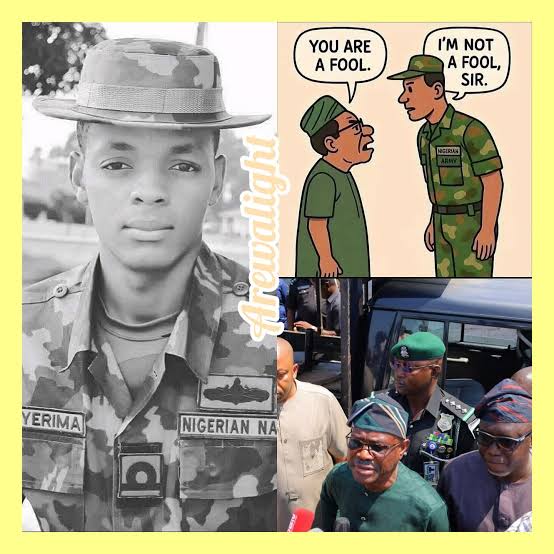The recent confrontation between FCT Minister Nyesom Wike and a naval officer whatever the precise details may be has once again forced Nigerians to confront an uncomfortable truth: in our country, power is not just exercised, it is often performed. And when power becomes performance, clashes like this are almost inevitable.
Even though the full facts are still emerging, the broader lesson is already clear. This was more than an argument at a checkpoint or a moment of misunderstanding. It was a mirror held up to the Nigerian state, reflecting how fragile our relationship is with authority both civilian and uniformed.
A Culture Where Authority Overshadows Service
Too often in Nigeria, authority is treated as something to be defended at all costs. Public officials sometimes move with the belief that their office places them above routine procedures, and some security personnel respond with an equally rigid sense of superiority. When two centers of power collide political authority on one side, military discipline on the other the result is rarely pleasant.
This is not unique to Wike or the officer involved. It is symptomatic of a deeper national problem: a power culture that prioritizes ego over service, and status over restraint.
Why These Incidents Keep Happening
Incidents like this persist partly because our institutions do not encourage humility. The structures meant to create order often end up creating unnecessary friction. Checkpoints become arenas of authority. Public spaces become stages where influence is displayed, not exercised responsibly.
Most importantly, there is little incentive to de-escalate. In Nigeria, backing down is often seen as weakness, rather than wisdom.
The Real Issue: A System Without Clear Boundaries
A healthy democracy requires clearly defined lines between civilian authority and security institutions. In Nigeria, these lines are blurry. Neither side is always sure where one authority ends and the other begins and this confusion breeds conflict.
When protocol is unclear, interpretation takes over. And where interpretation rules, ego quickly fills the gap.
What Must Change
If Nigeria is serious about preventing episodes like this, both sides of the power divide must evolve.
Clearer Inter-Agency Protocols
Political leaders and security agencies need unambiguous rules governing interactions, especially in high-pressure situations.
Professionalism and Emotional Intelligence Training
Security officers must be equipped to handle tense encounters without escalation, and public officials must learn to model calm leadership.
Accountability on Both Sides
There can be no sacred cows. Whether uniformed or elected, those who misuse authority should face consequences.
A Cultural Reset Around Power
Power should not be something to be asserted, but something to be managed. Nigeria must redefine authority as service, not spectacle.
The Bigger Picture
The Wike–naval officer clash is already fading from the news cycle, but the deeper issues it exposes should not be ignored. It is a reminder that the fragility of our institutions is not abstract it shows up in everyday interactions, in public service, and in how our leaders and officers treat each other.
Until Nigeria rethinks its approach to authority, these incidents will repeat themselves louder, more dramatic, more damaging.
Because ultimately, this is not about one minister or one officer.
It is about a nation still struggling to decide what kind of power it wants to embody: the power of arrogance or the power of responsibility.
Read also: Building the Future—Promoting Indigenous Innovation Through Technical Education



